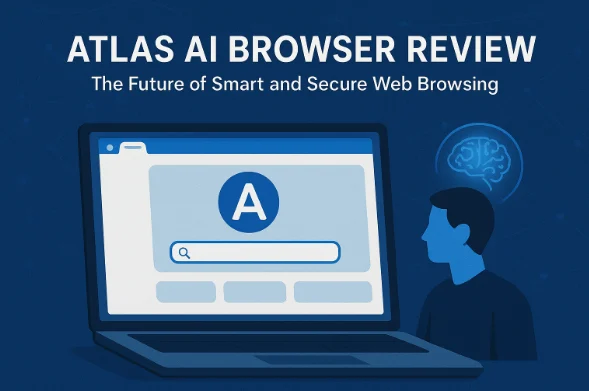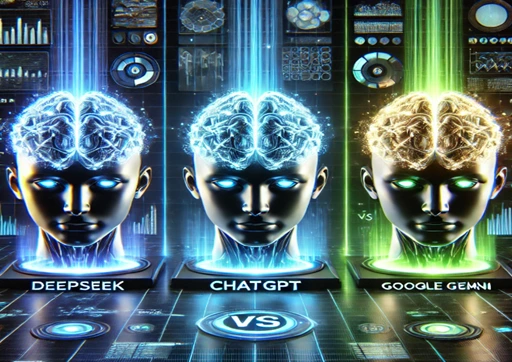
DeepSeek vs ChatGPT vs Google Gemini
Artificial Intelligence (AI) has rapidly evolved over the past few years, with large language models (LLMs) taking center stage in revolutionizing the way we interact with technology. Among the top contenders in the AI chatbot and language model space are DeepSeek, ChatGPT, and Google Gemini. The battle of “DeepSeek vs ChatGPT vs Google Gemini” is shaping the future of AI-powered conversations, automation, and research. Each of these models brings unique capabilities, strengths, and weaknesses to the table. But how do they compare against each other in terms of accuracy, usability, versatility, and overall intelligence?
In this comprehensive comparison, we will dive deep into each AI model’s features, strengths, weaknesses, and practical applications to help determine which one stands out as the best.
Introduction to the Contenders
In the rapidly evolving world of artificial intelligence, three platforms have emerged as frontrunners, each offering unique capabilities and catering to different user needs. These contenders—DeepSeek, ChatGPT, and Google Gemini—represent the cutting edge of AI technology, but they approach the field from distinct angles. To understand how they stack up against each other, it’s essential to first get to know them individually. Let’s take a closer look at each of these AI powerhouses.
1. DeepSeek: The Rising Star in AI
DeepSeek is a relatively new entrant in the AI landscape, but it has quickly made a name for itself with its advanced natural language processing (NLP) capabilities. Designed to deliver highly accurate and context-aware responses, DeepSeek is built to cater to both individual users and businesses. Its primary focus is on understanding and generating human-like text, making it a versatile tool for a wide range of applications.
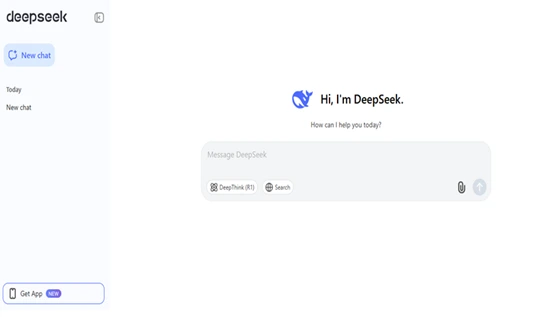
One of DeepSeek’s standout features is its ability to maintain context over extended conversations. This makes it particularly useful for tasks like customer support, where understanding the flow of a conversation is critical. Additionally, DeepSeek is designed to handle complex queries, making it a strong contender for industries that require detailed and nuanced responses, such as legal, healthcare, and finance.
Despite being a newer platform, DeepSeek has already gained traction due to its user-friendly interface and competitive pricing. It offers flexible plans tailored to different user needs, from casual users to large enterprises. However, as with any new technology, it’s still in the process of expanding its ecosystem and integration options, which may limit its appeal to users who rely heavily on third-party tools.
2. ChatGPT: The Household Name in AI Conversations
When it comes to AI-powered language models, ChatGPT is arguably the most well-known and widely used. Developed by OpenAI, ChatGPT is built on the GPT (Generative Pre-trained Transformer) architecture, which has set the standard for natural language understanding and generation. Since its launch, ChatGPT has become synonymous with AI-driven conversations, content creation, and problem-solving.
ChatGPT’s strength lies in its versatility. It can handle a wide range of tasks, from writing essays and generating code to providing tutoring and brainstorming ideas. Its user-friendly, chat-based interface makes it accessible to both beginners and experts, and its ability to generate coherent and contextually relevant responses has made it a favorite among professionals and casual users alike.
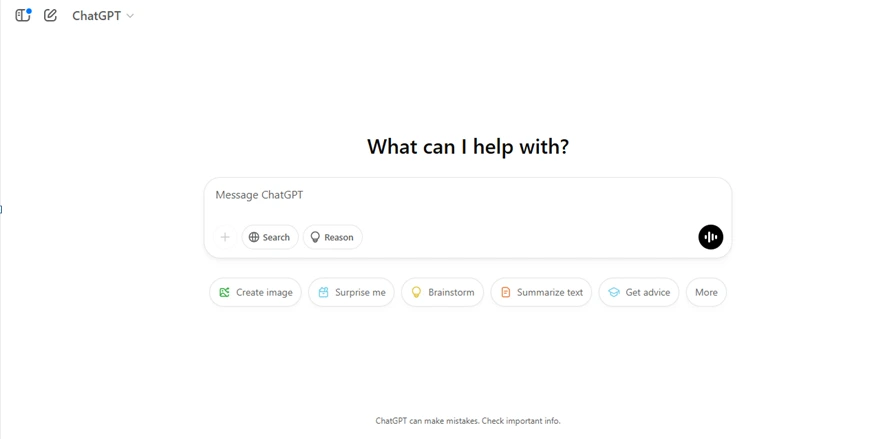
One of the reasons for ChatGPT’s widespread adoption is its integration with various platforms and tools. It seamlessly integrates with productivity tools like Microsoft Teams and Slack, making it easy for users to incorporate AI into their daily workflows. Additionally, OpenAI offers a well-documented API, allowing developers to build custom applications on top of ChatGPT.
However, ChatGPT is not without its limitations. While it excels at generating human-like text, it can sometimes produce generic or overly verbose responses, especially when dealing with ambiguous queries. Additionally, its reliance on pre-trained data means it may occasionally provide outdated or inaccurate information.
3. Google Gemini: The Multimodal Powerhouse
Google’s entry into the AI arena, Google Gemini, represents a significant leap forward in AI capabilities. Unlike DeepSeek and ChatGPT, which primarily focus on text-based interactions, Google Gemini is a multimodal AI model. This means it can process and generate not just text but also images, audio, and even video. This multimodal approach opens up a whole new world of possibilities, making Gemini a powerful tool for businesses and developers.
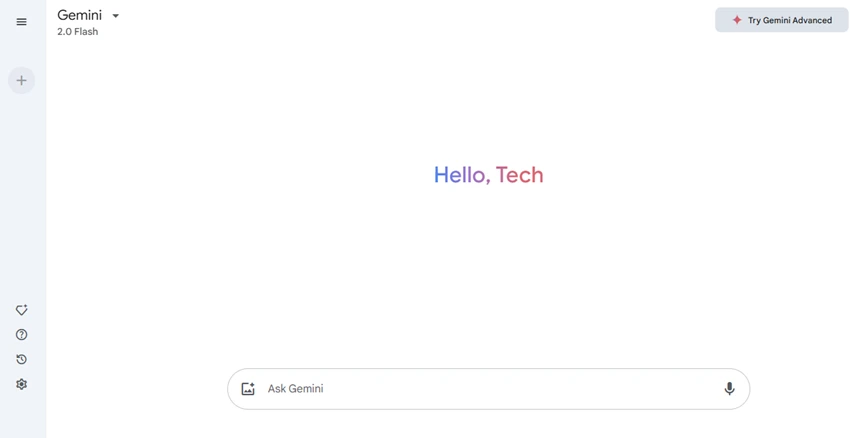
Google Gemini is designed to integrate seamlessly with Google’s ecosystem, including Google Workspace, Google Cloud, and other Google services. This makes it an attractive option for businesses already invested in Google’s tools, as it allows for easy scalability and customization. For example, Gemini can be used to analyze images, transcribe audio, and even provide real-time translations, making it a versatile solution for a wide range of industries.
One of Gemini’s standout features is its ability to handle complex, multimodal tasks. For instance, it can analyze a document, extract key information, and generate a summary—all while understanding the context and nuances of the content. This makes it particularly useful for industries like healthcare, where analyzing medical images and patient data is critical.
Now that we’ve introduced the contenders, let’s break down their features and performance across key categories.
1. Accuracy and Contextual Understanding
One of the most critical aspects of any AI tool is its ability to understand context and deliver accurate responses. Let’s see how each platform performs in this area.
DeepSeek: DeepSeek excels in contextual understanding, thanks to its advanced NLP algorithms. It can maintain context over long conversations, making it ideal for tasks like customer support or detailed content creation. However, being a newer platform, it may occasionally struggle with highly specialized or niche topics.
ChatGPT: ChatGPT is known for its ability to generate coherent and contextually relevant responses. Its training on vast datasets allows it to handle a wide range of topics with ease. However, it can sometimes produce generic or overly verbose answers, especially when dealing with ambiguous queries.
Google Gemini: Google Gemini leverages Google’s massive data resources and expertise in AI to deliver highly accurate and context-aware responses. Its multimodal capabilities allow it to understand and process not just text but also images and audio, giving it an edge in complex scenarios. However, its reliance on Google’s ecosystem may limit its flexibility for users outside that environment.
Verdict: Google Gemini takes the lead in accuracy and contextual understanding, thanks to its multimodal capabilities and integration with Google’s vast resources. DeepSeek and ChatGPT are close contenders, with DeepSeek offering better context retention and ChatGPT providing broader topic coverage.
2. Versatility and Use Cases
Different AI tools cater to different needs. Let’s explore the versatility of each platform and the use cases they’re best suited for.
DeepSeek: DeepSeek is highly versatile, with applications ranging from content creation and marketing to customer support and data analysis. Its ability to handle complex queries and maintain context makes it a strong choice for businesses looking for a reliable AI assistant.
ChatGPT: ChatGPT’s versatility is one of its biggest strengths. It can be used for everything from writing essays and generating code to providing tutoring and brainstorming ideas. Its user-friendly interface and extensive documentation make it accessible to both beginners and experts.
Google Gemini: Google Gemini is designed for scalability and integration, making it ideal for businesses and developers. Its multimodal capabilities open up unique use cases, such as image analysis, voice recognition, and real-time translation. However, its complexity may be overkill for casual users.
Verdict: ChatGPT wins in terms of sheer versatility, thanks to its wide range of applications and ease of use. DeepSeek is a close second, particularly for business-oriented tasks, while Google Gemini shines in enterprise-level and multimodal scenarios.
3. User Experience and Interface
A tool is only as good as its usability. Let’s compare the user experience and interface of each platform.
DeepSeek: DeepSeek offers a clean and intuitive interface, making it easy for users to navigate and access its features. Its focus on simplicity and functionality ensures a smooth user experience, even for those new to AI tools.
ChatGPT: ChatGPT’s interface is straightforward and user-friendly, with a chat-based format that feels natural and engaging. Its integration with platforms like Slack and Microsoft Teams further enhances its usability.
Google Gemini: Google Gemini’s interface is more complex, reflecting its advanced capabilities and enterprise focus. While it offers powerful features, the learning curve can be steep for casual users. However, for developers and businesses, its robust API and customization options are a major plus.
Verdict: ChatGPT takes the crown for user experience, thanks to its simplicity and accessibility. DeepSeek follows closely, while Google Gemini is better suited for tech-savvy users and businesses.
4. Integration and Ecosystem
Integration with other tools and platforms can significantly enhance an AI tool’s utility. Let’s see how each platform performs in this regard.
DeepSeek: DeepSeek offers solid integration options, particularly for businesses using CRM and customer support tools. However, its ecosystem is still growing, and it may not yet match the breadth of integration offered by more established platforms.
ChatGPT: ChatGPT integrates seamlessly with a wide range of platforms, including Microsoft Teams, Slack, and various productivity tools. Its API is well-documented and widely used, making it easy for developers to incorporate ChatGPT into their workflows.
Google Gemini: Google Gemini’s integration with Google’s ecosystem is its biggest strength. It works seamlessly with Google Workspace, Google Cloud, and other Google services, making it a powerful tool for businesses already invested in the Google ecosystem.
Verdict: Google Gemini is the clear winner in terms of integration, especially for businesses using Google’s tools. ChatGPT follows closely, while DeepSeek is still catching up in this area.
5. Pricing and Accessibility
Cost is a crucial factor when choosing an AI tool. Let’s compare the pricing and accessibility of each platform.
DeepSeek: DeepSeek offers competitive pricing, with flexible plans tailored to individual users and businesses. Its free tier provides access to basic features, making it accessible to a wide audience.
ChatGPT: ChatGPT offers a freemium model, with a free tier for casual users and a paid subscription (ChatGPT Plus) for advanced features and priority access. Its pricing is transparent and affordable, making it a popular choice for individuals and small businesses.
Google Gemini: Google Gemini is primarily aimed at businesses and developers, with pricing based on usage and scale. While it offers powerful features, its cost can be prohibitive for casual users or small businesses.
Verdict: ChatGPT is the most accessible option, thanks to its freemium model and affordable pricing. DeepSeek offers good value for businesses, while Google Gemini is best suited for enterprises with larger budgets.
6. Future Potential and Innovation
Finally, let’s consider the future potential and innovation of each platform.
DeepSeek: As a newer player, DeepSeek has significant potential for growth and innovation. Its focus on accuracy and context retention positions it well for future advancements in AI.
ChatGPT: OpenAI’s commitment to continuous improvement ensures that ChatGPT will remain at the forefront of AI innovation. Its open API and active developer community further enhance its potential.
Google Gemini: Google’s vast resources and expertise in AI give Gemini a strong foundation for future innovation. Its multimodal capabilities and integration with Google’s ecosystem make it a powerful contender in the AI space.
Verdict: All three platforms have strong potential, but Google Gemini’s integration with Google’s ecosystem and multimodal capabilities give it an edge in terms of future innovation.
7. Coding and Technical Assistance
For developers and technical professionals, the ability of an AI tool to assist with coding and technical tasks is a crucial factor. Let’s see how each platform performs in this area.
DeepSeek: DeepSeek offers robust support for coding and technical assistance. It can generate code snippets, debug errors, and provide explanations for complex technical concepts. Its ability to understand context makes it a valuable tool for developers working on intricate projects. However, its library of programming languages and frameworks is still expanding, which may limit its utility for some users.
ChatGPT: ChatGPT is widely regarded as one of the best AI tools for coding assistance. It supports a wide range of programming languages and frameworks, and its ability to generate, debug, and optimize code is highly impressive. Additionally, ChatGPT can provide detailed explanations of technical concepts, making it a great learning tool for aspiring developers. Its integration with platforms like GitHub further enhances its utility for coding tasks.
Google Gemini: Google Gemini’s coding capabilities are powered by its advanced multimodal AI, which can process not just text but also images and audio. This makes it particularly useful for tasks like code documentation, image-to-code conversion, and voice-based coding assistance. However, its focus on enterprise-level solutions means that it may not be as accessible or user-friendly for individual developers compared to ChatGPT.
Verdict: ChatGPT is the clear winner in the coding and technical assistance category, thanks to its extensive support for programming languages, user-friendly interface, and integration with developer tools. DeepSeek is a strong contender, particularly for context-aware coding tasks, while Google Gemini’s advanced capabilities make it a powerful option for enterprise-level technical assistance.
Conclusion: Which AI Tool Should You Choose?
The choice between DeepSeek, ChatGPT, and Google Gemini ultimately depends on your specific needs and use cases. Here’s a quick summary to help you decide:
Choose DeepSeek if you’re looking for a reliable and context-aware AI tool for business-oriented tasks like customer support and content creation.
Choose ChatGPT if you want a versatile and user-friendly AI tool for a wide range of applications, from casual use to professional tasks.
Choose Google Gemini if you’re a business or developer looking for a powerful, multimodal AI solution with seamless integration into Google’s ecosystem.
Each of these AI tools has its strengths and weaknesses, and the best choice will depend on your unique requirements. As AI technology continues to evolve, we can expect even more exciting developments from DeepSeek, ChatGPT, and Google Gemini. The ultimate winner? That’s for you to decide.
Disclaimer
This article is for informational purposes only and reflects the author’s personal opinions based on available data. The capabilities of AI models may change over time with updates and improvements. Readers should conduct their own research before making decisions based on this comparison.
Which AI model do you prefer? Let us know in the comments!
Also Read
Top 5 Linux Laptops of 2025: Performance Meets Portability



